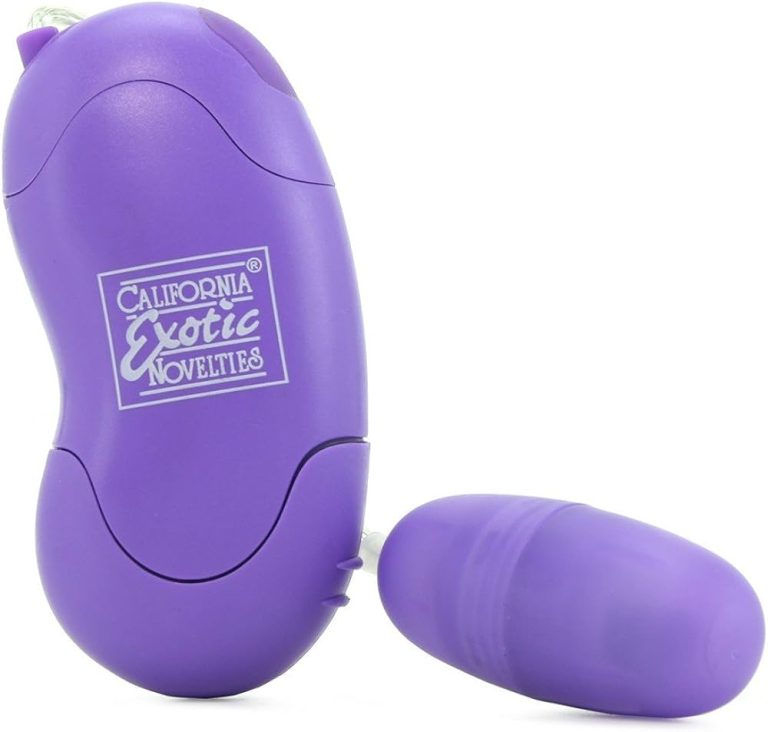9 Best Allergy Medicine for Dogs: Top Picks for Relief and Comfort
Watching your furry friend suffer from allergies can be heartbreaking. Whether it’s incessant scratching, red eyes, or constant sneezing, dog allergies are a common yet distressing problem. Thankfully, there are effective medications that can help alleviate these symptoms and improve your dog’s quality of life.
In this article, you’ll discover the 9 best allergy medicines for dogs, carefully selected to address various allergic reactions. From antihistamines to natural remedies, we’ve got you covered with options that can bring relief to your beloved pet. Let’s dive in and find the perfect solution to keep your dog happy and healthy.
Types of Allergies in Dogs
Dogs can suffer from various types of allergies, each requiring unique treatments and preventive measures. Understanding these can help you better manage your pet’s symptoms.
Food Allergies
Food allergies in dogs are often triggered by specific proteins, such as beef, chicken, or dairy. Symptoms typically include itching, digestive issues, and ear infections. Switching to hypoallergenic dog food can often alleviate these issues.
Environmental Allergies
Environmental allergies usually result from exposure to pollen, mold, dust mites, or grass. Dogs with these allergies often show signs like sneezing, runny eyes, and paw licking. Using air purifiers and frequent bathing can help minimize exposure.
Skin Allergies
Skin allergies, or atopic dermatitis, are commonly linked to both food and environmental allergens. Symptoms include excessive scratching, red or inflamed skin, and hair loss. Topical treatments like medicated shampoos and creams can provide relief.
Consideration Before Choosing Allergy Medicines
Choosing the right allergy medicine for your dog requires careful consideration to ensure their health and well-being.
Consulting a Veterinarian
Consulting a veterinarian is crucial before starting any allergy medication. Your vet can identify the specific allergens causing your dog’s symptoms. They’ll perform tests and consider your dog’s medical history to recommend the most effective treatment. A professional opinion ensures you’re addressing the root cause, rather than just masking symptoms.
Considering the Side Effects
Considering the side effects of allergy medications is essential for your dog’s safety. Some drugs can cause drowsiness, increased hunger, or even behavioral changes. Research each medicine’s side effects and discuss them with your vet. Understanding these potential impacts helps you make an informed decision, prioritizing your dog’s health and comfort.
1. Over-the-Counter Antihistamines
Over-the-counter antihistamines can be a go-to solution for your dog’s allergy symptoms like itching, sneezing, and watery eyes. These medications are typically safe when used correctly and can provide relief without a prescription.
Benefits of Antihistamines
Relieve Itching: Antihistamines can significantly reduce your dog’s itching, making them more comfortable and less likely to scratch.
Reduce Inflammation: These medications help decrease inflammation caused by allergens, leading to less redness and swelling.
Control Sneezing: Antihistamines can control sneezing and nasal discharge, making it easier for your dog to breathe.
Improve Sleep: By alleviating allergy symptoms, antihistamines can help your dog sleep better and feel more rested.
Recommended Products
Benadryl: This is one of the most commonly used antihistamines for dogs. It can alleviate itching and swelling but always consult your vet for correct dosage.
Claritin: Another popular choice, Claritin can help your dog with a variety of allergy symptoms, including sneezing and itchy skin.
Zyrtec: Zyrtec is effective in relieving skin allergies and can be used for dogs with sensitivities to other antihistamines.
Chlorpheniramine: Less known but highly effective, this antihistamine can be useful for dogs with moderate to severe allergies.
Always consult your veterinarian before starting any medication to ensure it’s safe and appropriate for your dog’s specific condition.
2. Prescription Steroids
Prescription steroids can be powerful allies in managing severe allergy symptoms in dogs. They should only be used under the direct supervision of a veterinarian.
When Are Steroids Prescribed?
Steroids are prescribed for severe, persistent allergy symptoms that don’t respond to other treatments. They can be highly effective in reducing inflammation, alleviating itching, and controlling immune responses. Vets may prescribe steroids like prednisone or dexamethasone when antihistamines and topical treatments aren’t enough. These medications are usually given in tapering doses to minimize potential side effects.
Precautions and Side Effects
Steroids, while effective, can have significant side effects if not managed properly. Common side effects include increased thirst, frequent urination, and potential weight gain. Long-term use can lead to more serious issues like weakened immune function or adrenal problems. Always follow your vet’s instructions regarding dosage and duration, and never stop the medication abruptly. Regular check-ups are essential to monitor your dog’s health and adjust the treatment as needed.
3. Topical Treatments
Topical treatments can be highly effective for treating dog allergies, targeting the skin directly where the issue often arises.
Advantages of Topical Applications
Topical treatments provide localized relief. They deliver medication directly to the affected area, reducing systematic side effects. Ease of application makes them convenient. Pet owners can apply these treatments without much hassle. Furthermore, they offer quick relief from itching and inflammation, sometimes calming symptoms within minutes.
Popular Topical Products
Hydrocortisone creams work wonders. They reduce inflammation and itching quickly. Aloe vera gels soothe irritated skin. They provide a natural alternative with additional moisturizing benefits. Antibacterial ointments, like Neosporin, prevent infections in irritated or scratched skin. Remember to always consult your vet before applying any product to ensure it’s safe and appropriate for your dog’s specific condition.
4. Specialized Shampoos
Specialized shampoos can be a game-changer for pets with skin allergies. They offer targeted relief and address specific skin issues effectively.
How Shampoos Can Help
Specialized shampoos can alleviate symptoms associated with skin allergies in dogs. These shampoos often contain soothing ingredients like oatmeal and aloe vera, which can reduce itching and inflammation. They can also help remove allergens from your dog’s coat, such as pollen or dust mites, which can prevent further irritation.
Choosing the Right Shampoo
Choosing the right shampoo for your dog involves considering the specific needs of their skin and coat. Look for shampoos free of harsh chemicals, parabens, and fragrances, as these can exacerbate allergies. Opt for formulas that are hypoallergenic and contain natural ingredients like tea tree oil or chamomile. Consult your vet for recommendations tailored to your dog’s particular allergy triggers.
5. Omega-3 Fatty Acid Supplements
Omega-3 fatty acid supplements can be highly beneficial for dogs with allergies. These supplements help reduce inflammation and support overall skin health.
Improving Skin Health
Enhancing your dog’s skin health is crucial in managing allergies. Omega-3 fatty acids, found in fish oil, flaxseed oil, and certain marine algae, help reduce itching and redness. These nutrients improve the lipid barrier on your dog’s skin, preventing allergens from causing reactions. Studies show that regular supplementation can lead to significant improvements in coat quality and skin hydration.
Best Products on the Market
Choosing the right Omega-3 fatty acid supplement can make a big difference for your dog’s allergy management. Some top-rated products include:
- Nordic Naturals Omega-3 Pet: This supplement boasts high levels of EPA and DHA, essential for reducing inflammation.
- Zesty Paws Pure Wild Alaskan Salmon Oil: Rich in Omega-3 and Omega-6 fatty acids, it enhances skin health and promotes a shiny coat.
- Grizzly Salmon Plus Omega-3 Fatty Acids Supplement: Known for its purity and potency, it helps alleviate allergy symptoms and supports overall health.
Always consult your vet before starting any new supplement to ensure it’s suitable for your dog’s specific needs.
6. Oral Immunotherapy
Oral immunotherapy can be a game-changer for dogs with severe allergies. It works by gradually desensitizing your dog to the allergens causing discomfort.
The Concept of Oral Immunotherapy
Oral immunotherapy (OIT) involves administering small, increasing doses of an allergen to your dog over time. This helps your dog’s immune system become less sensitive to the allergen, potentially reducing allergic reactions. Allergy tests usually identify the specific allergens, and a personalized serum is created for your dog.
Pros and Cons
Pros
- Reduces Reactions: OIT can significantly lessen your dog’s allergic reactions.
- Long-Term Relief: Offers a more permanent solution compared to temporary relief options.
- Customized Treatment: Tailored to your dog’s specific allergens for effective management.
- Time-Consuming: Requires consistent administration over months or even years.
- Costly: The treatment can be expensive due to its customized nature.
- Requires Monitoring: Regular vet check-ups are crucial to adjust dosages and ensure safety.
7. CBD Products
Understanding CBD for Allergies
Cannabidiol (CBD) offers potential relief for dogs suffering from allergies. It interacts with your dog’s endocannabinoid system to reduce inflammation and alleviate itching. CBD is derived from hemp plants, ensuring it’s non-psychoactive and safe for pets. Publications like the Harvard Health Blog explain that CBD’s anti-inflammatory properties can help manage allergic reactions.
Safe Usage of CBD
Start with a low dosage to monitor your dog’s reaction to CBD, as the correct dosage can vary. Consult your vet before introducing CBD, particularly if your dog is on other medications. Choose high-quality CBD products specifically formulated for pets to ensure safety and efficacy. Look for third-party lab results to verify purity and potency.
8. Probiotics
Probiotics can significantly improve your dog’s gut health and manage allergy symptoms. Let’s explore their role and effective strains.
Role of Probiotics in Allergy Management
Probiotics support a healthy gut microbiome, which is crucial for a strong immune system. A balanced gut can reduce inflammation, often linked to allergies. By improving digestion, probiotics help your dog better absorb nutrients, crucial for combating allergens. Studies have shown that certain probiotic strains can decrease skin irritation and itching caused by allergies (source: NIH).
Effective Probiotic Strains
Certain strains are more effective for allergy relief. Lactobacillus and Bifidobacterium are known to boost the immune system and reduce inflammation. Another powerful strain is Bacillus coagulans, which aids in digestion and promotes a healthy gut lining. Look for supplements containing these strains for optimal results. Ensure the probiotic is tailored for dogs to maximize its benefits.
9. Homeopathic Remedies
Homeopathic remedies offer gentle and holistic alternatives for treating your dog’s allergies. While more research is needed to fully validate their efficacy, many pet owners find these natural options helpful.
Exploring Natural Options
Consider natural options like homeopathy to reduce your dog’s allergy symptoms. These remedies focus on stimulating the body’s healing processes. Remedies are tailored to your dog’s specific symptoms and overall health, ensuring a personalized approach.
Examples of Homeopathic Treatments
Try Apis Mellifica for swelling and itching due to stings and bites. Arsenicum Album helps with digestive issues arising from food allergies. Sulphur is beneficial for skin conditions, including rashes and hot spots. Consult with a veterinarian experienced in homeopathy for proper guidance.
Here are a few examples commonly used:
| Remedy | Usage |
|---|---|
| Apis Mellifica | Swelling and itching from stings and bites |
| Arsenicum Album | Digestive issues from food allergies |
| Sulphur | Skin rashes and hot spots |
These treatments connect to previous sections, providing more options to manage your dog’s allergies naturally.
Conclusion
Choosing the right allergy medicine for your dog can make a significant difference in their quality of life. From antihistamines to natural remedies and homeopathic treatments, there are plenty of options to consider. Always consult your veterinarian to find the most suitable solution tailored to your dog’s specific needs. By exploring these treatments, you can help your furry friend live a happier, itch-free life.
Frequently Asked Questions
What are common treatments for dog allergies?
Common treatments include antihistamines, natural remedies, specialized shampoos, Omega-3 supplements, oral immunotherapy, and CBD products.
How can probiotics help with dog allergies?
Probiotics improve gut health, which can help manage allergy symptoms by boosting the dog’s immune system.
What are the benefits of homeopathic remedies for dog allergies?
Homeopathic remedies offer gentle and holistic treatment options that stimulate the body’s healing processes and can be tailored to specific symptoms and overall health.
Can you give examples of homeopathic treatments for dog allergies?
Examples include Apis Mellifica for swelling and itching, Arsenicum Album for digestive issues, and Sulphur for skin conditions.
Are natural remedies effective for treating dog allergies?
Natural remedies can be effective for many dogs, particularly when tailored to their specific symptoms and overall health.
Is it safe to use CBD products to treat dog allergies?
CBD products can be beneficial for some dogs, but it’s important to consult with a veterinarian to ensure safety and proper dosage.






